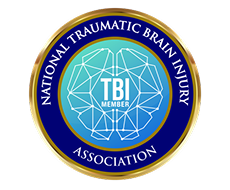Neurotrophins Help to Repair Brain Cells
Neurotrophins are a group of proteins that play a critical role in the growth, survival and repair of neurons in the brain and nervous system. These molecules are vital for maintaining the health and function of neurons, the cells responsible for transmitting signals throughout the body. Following brain injuries, such as traumatic brain injury (TBI) or neurodegenerative diseases, neurotrophins help facilitate the repair and regeneration of damaged brain cells, promoting recovery and improving cognitive and emotional function.
One of the primary neurotrophins is brain-derived neurotrophic factor (BDNF), which supports the survival and growth of neurons in the brain. BDNF plays an essential role in neuroplasticity, the brain’s ability to reorganize and form new connections. This is particularly important after a brain injury when the brain must repair damaged neural pathways and form new ones to restore function. By promoting the growth of new synapses and enhancing communication between neurons, BDNF aids in the recovery of memory, learning and motor functions often impaired after injury.
Another key neurotrophin is nerve growth factor (NGF), which is important for the survival and maintenance of certain types of neurons, particularly those involved in the autonomic nervous system. NGF is involved in the regeneration of nerve fibers after injury, and its action helps restore function to damaged neural networks. Additionally, it has been shown to reduce cell death in response to brain injury, further supporting the repair process.
Neurotrophins can also reduce the harmful effects of inflammation in the brain. After a TBI, inflammation can cause further damage to brain cells and delay recovery. By regulating inflammatory responses and promoting neuroprotection, neurotrophins can help limit secondary damage and enhance the brain’s ability to heal.
Researchers are investigating various therapies that can stimulate neurotrophin production or mimic their effects, such as using drugs or gene therapies to increase levels of these proteins in the brain. These approaches hold promise for improving the recovery of brain function after injury or in conditions like Alzheimer’s disease or Parkinson’s disease. Ultimately, neurotrophins play a vital role in the brain’s ability to repair and regenerate itself, offering hope for enhancing recovery and restoring cognitive health after brain injury.
Contribute to the TBI Times





